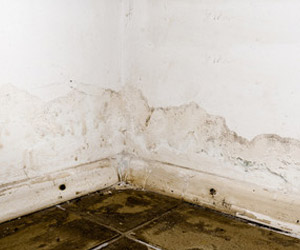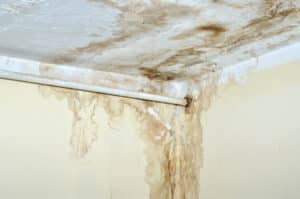A leaky basement may seem like a minor inconvenience at first, but the truth is that these seemingly innocuous drips can quickly escalate into serious problems, posing threats to the structural integrity of your home and the health of its occupants. In this comprehensive guide, we will explore the various ways in which basement leaks can develop into more severe issues, the potential consequences, and proactive measures to prevent and address these challenges.
The Quiet Culprits: How Basement Leaks Begin:
Cracks in the Foundation:
Often, basement leaks begin with small cracks in the foundation. These cracks can be caused by a variety of factors, including soil settlement, hydrostatic pressure, or natural wear and tear. As water finds its way through these openings, it initiates the process of basement leakage.
Poor Exterior Drainage:
Inadequate exterior drainage is a silent accomplice to basement leaks. When water is not effectively directed away from the foundation, it accumulates around the basement walls, increasing the likelihood of infiltration through cracks, joints, or porous concrete.
Clogged Gutters and Downspouts:
Gutters and downspouts are essential for directing rainwater away from the home. However, when they become clogged with debris, or if downspouts are faulty, water overflow can saturate the soil around the foundation, contributing to basement leaks.
Hydrostatic Pressure:
Changes in the water table, often due to heavy rainfall or snowmelt, can lead to an increase in hydrostatic pressure. This elevated pressure against the foundation walls can force water through any available openings, exacerbating basement leaks.
The Escalation: How Basement Leaks Develop into Serious Problems:
Mold and Mildew Growth:
One of the first consequences of persistent basement leaks is the growth of mold and mildew. The damp environment provides an ideal breeding ground for these fungi, which not only compromise indoor air quality but also pose serious health risks to occupants, including respiratory issues and allergies.
Structural Damage:
Over time, the continuous exposure to moisture weakens the structural integrity of the foundation. Water infiltration can lead to cracks, deterioration of concrete, and even damage to load-bearing walls. The result is a compromised foundation that requires extensive and costly repairs.
Foundation Shifts and Settling:
Excessive moisture can lead to soil erosion around the foundation. This, combined with the expansion and contraction of soil due to changes in moisture levels, can result in foundation shifts and settling. As the foundation moves, cracks may widen, exacerbating basement leaks and further compromising the structural stability of the home.
Electrical Hazards:
Water and electricity are a dangerous combination. Basement leaks can lead to water coming into contact with wiring, outlets, or electrical appliances, posing the risk of short circuits, electrical shocks, and, in extreme cases, fires. This creates a hazardous environment for the home’s occupants.
Damage to Belongings:
Stored items in the basement, including furniture, clothing, and valuables, are vulnerable to water damage. Basement leaks can result in the loss of cherished belongings and important items, adding a financial and emotional toll to the situation.
Decreased Property Value:
Homes with a history of basement leaks are often perceived as having structural issues and, consequently, experience a decrease in property value. This can make it challenging to sell the home, and potential buyers may be hesitant to invest in a property with a known history of water-related problems.
Unpleasant Odors:
The growth of mold and mildew, combined with damp conditions, leads to persistent musty odors in the basement. These odors can permeate throughout the home, creating an uncomfortable living environment for its occupants.
Compromised Indoor Air Quality:
Mold spores released into the air as a result of basement leaks can significantly compromise indoor air quality. Prolonged exposure to poor air quality may lead to respiratory issues, allergies, and other health concerns for those living in the home.
Proactive Measures: Preventing and Addressing Basement Leaks:
Regular Inspections:
Conduct regular inspections of your basement, paying close attention to walls, floors, and corners for signs of water infiltration. Prompt identification of minor leaks allows for timely intervention before they escalate into more significant problems.
Exterior Drainage Maintenance:
Ensure that exterior drainage systems, including gutters, downspouts, and grading, are well-maintained. Clean gutters regularly, redirect downspouts away from the foundation, and ensure proper grading to prevent water accumulation near the basement walls.
Foundation Sealing:
Seal cracks and gaps in the foundation promptly. Use waterproofing sealants to create a barrier against water infiltration. This proactive measure can prevent small cracks from turning into major pathways for water.
French Drain Installation:
Consider installing a French drain around the perimeter of your home. This drainage system, consisting of a perforated pipe and gravel, helps divert water away from the foundation, reducing the risk of hydrostatic pressure and basement leaks.
Sump Pump Maintenance:
If you have a sump pump, ensure it is well-maintained and functions properly. Regularly test the pump and its backup systems to address any potential malfunctions before they lead to basement flooding.
Waterproofing Exterior Walls:
Apply a waterproofing membrane or coating to the exterior walls of the foundation. This extra layer of protection enhances the resistance of the foundation against water infiltration, reducing the likelihood of basement leaks.
Interior Drainage Systems:
Install interior drainage systems, such as channel drains or perimeter drains, to collect and redirect water away from the basement. These systems are effective in managing water infiltration and preventing it from reaching the basement floor.
Elevate Stored Items:
Store belongings on raised platforms or shelves to minimize the risk of water damage in the event of basement leaks. Elevating items above potential water levels can protect them from costly and irreplaceable damage.
Invest in a Dehumidifier:
Use a dehumidifier to maintain optimal humidity levels in the basement. This not only prevents mold and mildew growth but also creates an environment less conducive to the development of serious water-related problems.
Consult with Waterproofing Professionals:
If you notice persistent basement leaks or suspect more significant issues, consult with waterproofing professionals. Their expertise can help identify the root causes of the problems and provide tailored solutions to address and prevent further escalation.
Basement leaks, if left unaddressed, have the potential to escalate into serious problems that compromise the integrity of your home and the well-being of its occupants. Understanding the causes and consequences of basement leaks is the first step toward implementing proactive measures to prevent and address these issues. By regularly inspecting your basement, maintaining exterior drainage, sealing foundation cracks, and investing in appropriate waterproofing measures, you can safeguard your home from the costly and disruptive consequences of escalating basement leaks. Remember, when it comes to basement leaks, swift and proactive action is key to preventing drips from turning into disasters.
Contact the Professionals at Seal-Tite Basement Waterproofing Today! 540-992-1144

Seal-tite Basement Waterproofing Co. is a full service basement environment contractor. We carry an A+ Better Business Bureau rating. We repaired over 40,000 homes and structures in Virginia, West Virginia, Tennessee, and North Carolina. We are fully insured and licensed. We have worked in all types of locations, including residential and commercial locations, government agencies, colleges, hospitals, churches, and condo associations.
Seal-tite® offers a lifetime transferable warranty. We carry a Class A Contractor’s License and we are fully insured. Our satisfied customers range from government agencies to businesses, hospitals, colleges, churches, and thousands of homeowners. Your home is probably the single largest investment you will make in your lifetime. Don’t wait, call Seal-tite® to help make your home dry, safe and livable.


 Call or email for a free estimate. For immediate help call
Call or email for a free estimate. For immediate help call  Start with trust. We’re BBB A+ Rated The Top Satisfaction Rate Awarded.
Start with trust. We’re BBB A+ Rated The Top Satisfaction Rate Awarded.